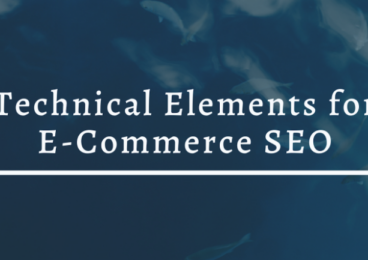 Reading Time: 3 minutes
Reading Time: 3 minutesBusinesses rely heavily upon marketing campaigns to effectively grow their customer base. After all, the more people you attract, the more likely you are to be successful. A critical element to successful marketing is the use of target keywords. In a way, it can be helpful to consider keywords as a bridge connecting potential customers to your business. For the connection to work, you need to know which bridge your customers are using. Choosing the right bridge will yield you many connections while choosing the wrong one could leave you with none. This is especially important when it comes to running a Pay-Per-Click campaign.
The fee for Pay-Per-Click ads is triggered every time someone clicks on it, so these ads must be displayed to the most relevant audience. Ideally, the traffic and conversations generated from the campaign should help to offset those costs. However, choosing the wrong keywords could result in clicks from people that ultimately aren’t interested in your business, losing you money over time. To get the best return on investment on your Pay-Per-Click campaign, here are some helpful strategies to select useful keywords:
- Think like a customer
It may sound like a silly concept at first, but this simple, mental exercise can actually be incredibly helpful in identifying the best keywords. Imagine yourself as the customer. What keywords would you use if you were looking to buy items like the ones you have in stock?
- Start broad, then get specific
An alternative method to get started is to begin with a very general term and then start narrowing your focus further and further. The use of words at various levels of the spectrum is helpful because the more generic terms will increase the amount of exposure your ad receives. In contrast, the more specific terms typically yield higher conversion rates.
- Look for synonyms and alternate phrasing
Once you have your initial list of keywords, you can expand upon it by adding in different variations of those same terms. People are unique, and when searching for the same object, they may use slightly different verbiage or spelling. This allows you to get the most out of your initial list.
- Use Google
Google actually has a few effective ways to collect keywords. One extremely simple method is to start by inputting some basic keywords into the search engine and seeing what other searches Google recommends. If you still need more keywords, hit submit on the search and scroll to the bottom of the page. This is where Google often suggests related searches. If any of the suggestions match your ad content and products, you can add them to your list.
Google has also created its own tools for keyword assistance, including the Keyword Planner and Google Trends.
- Group your keywords
When utilizing keywords, you can combine them into ad groups. Having clearly organized ad groups allows you to make comparisons and determine which categories are more successful than others. The ability to assess your performance and make adjustments as necessary is an important part of the process.
- Finally, don’t be afraid to use negative keywords
Despite the name, having negative keywords isn’t a bad thing. In fact, negative keywords can be extremely helpful. These are essentially keywords that you want your campaign to specifically avoid. Every business has its target audience, but most also have “not applicable” audiences, meaning groupings of people with no interest in your product. For instance, if you are a purveyor of gift baskets featuring varieties of dried meats, you know that it is very unlikely you’ll achieve a high conversion right amongst the vegan and vegetarian crowd. Including negative search terms that appeal to those users helps prevent your ad from appearing to them.
At Vizion Interactive, we have the expertise, experience, and enthusiasm to get results and keep clients happy! Learn more about how our status as a Google Partner, along with our PPC Management, Google Shopping Ads, Social Media Advertising, Amazon Advertising, and other Paid Media services can increase sales and boost your ROI. But don’t just take our word for it, check out what our clients have to say, along with our case studies.




